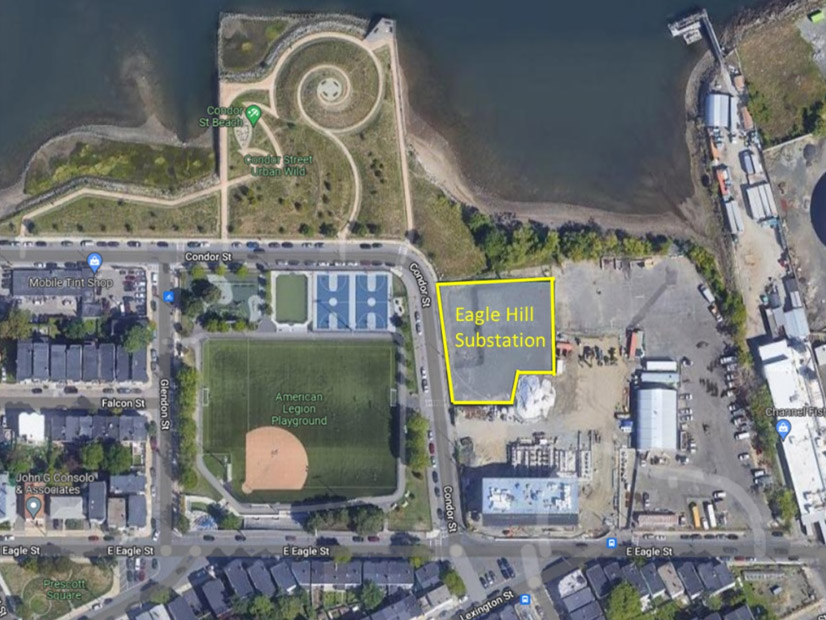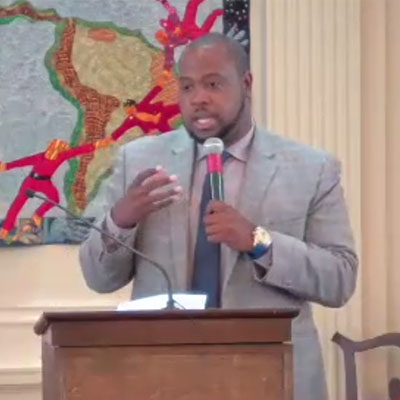Consulting with host communities at the beginning of planning processes for new clean energy projects would expedite development timelines and prevent unnecessary impacts on vulnerable communities, Massachusetts environmental justice leaders said at a forum Jan. 20.
The meeting was convened by the Massachusetts Environmental Justice Table, a coalition of environmental, civil rights and Indigenous organizations focused on promoting environmental justice policy in the state.
The speakers emphasized the negative effects existing permitting and siting procedures have had on vulnerable populations in the state.
“The process has not been working and is not working,” said Paula García, senior bilingual energy analyst at the Union of Concerned Scientists. “Most of the fossil fuel power plants are concentrated in environmental justice neighborhoods, with their associated negative health impacts.”
The coalition is promoting a bill in the state legislature that would make significant reforms to the state’s Energy Facilities Siting Board (EFSB), adding climate, environmental justice and public health to the EFSB’s priorities and introducing representation for environmental justice and indigenous communities.
The bill would also require early engagement and cumulative impact assessments prior to a project’s approval, while expediting the process for approving clean energy generators and storage projects. Top legislators have indicated that permitting and siting reform will be a major focus of an omnibus climate and energy bill this year. (See Mass. Lawmakers Aiming for an Omnibus Climate Bill in 2024.)
“We support a transition to renewable energy but need laws and regulations that carefully consider the costs, risks, benefits, burdens and needs of hosting environmental justice communities,” said Rusty Polsgrove, an environmental justice organizer at Springfield-based Arise for Social Justice.
Polsgrove spoke about the group’s ongoing fight against Eversource’s contested proposed pipeline project in Western Massachusetts. (See More Environmental Information Required for Western Mass. Gas Pipeline.) Polsgrove said Eversource engaged with the community too late in the planning process, after the company had already spent a significant amount of time and money on planning and permitting the pipeline.
“That’s tokenism,” Polsgrove said, adding that the late engagement prevented meaningful consideration of community needs and existing burdens in the planning process.
John Walkey and Noemy Rodriguez of Chelsea-based environmental justice organization GreenRoots discussed their experiences with Eversource’s community engagement process for the long-fought substation in East Boston.
“We didn’t find out about the plans for the substation until the project was well underway and moving forward,” said Rodriguez, translated into English by Walkey. “When we tried to get involved with the project, the state proceedings were not translated into Spanish.”
Greasing the Skids
Walkey contrasted the community engagement around the substation in East Boston with a battery project in Chelsea, in which the developers solicited input from GreenRoots early in the process.
“They’re interacting with us. We’re helping them grease the skids basically to move this project forward, and we’re pleased with it,” Walkey said.
He added that GreenRoots and other environmental justice activists who long opposed Eversource’s substation in East Boston are “not against electrical substations — in fact, we think if they’re needed, they should be built.”
At the same time, utilities and project developers should work with communities to develop the best solution for all involved, and consider options like efficiency and demand reduction, distributed energy, and batteries, Walkey said.
“We definitely need more capacity, but that capacity can’t be met by using the same tools of the last hundred years,” Walkey said, adding that utilities make significant rates of return on large infrastructure projects, which can disincentivize developing new methods to avoid these large projects altogether.
If the substation in East Boston, sited on the banks of Chelsea Creek, is damaged by climate-fueled flooding, “[ratepayers] will pay to repair it, and [Eversource] will be guaranteed a profit margin off of the repair,” Walkey said.
Eversource and National Grid, the state’s two largest electric utilities, have proposed to build a combined 40 new substations to meet growing electricity demand coming from heating and transportation electrification in the state. (See Mass. Utilities Submit Grid Modernization Drafts.)
In an email to NetZero Insider, Eversource spokesperson William Hinkle said permitting and siting reforms are “critical to ensuring that we can build the necessary infrastructure to help achieve the commonwealth’s decarbonization goals, and greater engagement and collaboration with our communities [are] essential to the process.”
He pointed to Eversource’s proposal with the state’s other electric utilities to create a Community Engagement Stakeholder Advisory Group “dedicated to ensuring communities are engaged early and often in project development and have a seat at the table as key decisions are being made over the next two decades.”
At the same time, Hinkle defended the company’s engagement with communities in East Boston and in Western Massachusetts, writing that the company has “always strived to engage our communities and solicit feedback from key stakeholders on projects.”





